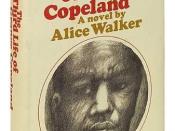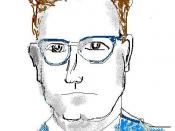101336- Minor Essay Tutor- Brain Salter
Question: What is sociology? What is the sociological imagination? What does C. Wright Mills mean when he writes of ' the personal troubles of milieu' and 'the public issues of social structure'? How does the sociological imagination help us understand the society we live in?
Sociology is the scientific study of society and human behaviour. Our thinking and motivation are largely shaped by our life experiences; this means, according to Barkan, that "society profoundly shapes⦠(our) behaviour and attitudes," (1974:p4). Bilton points out that we exist within social structures (1987: Ch 1), which refers to patterns of social interaction and relationships. Social structure in turn, has a great influence on who we are as individuals, through our behaviour, our attitudes, and our life chances. A way of understanding the concept of sociology is through the 'Sociological Imagination', written by C. Wright Mills, which provides a variety of perspectives of the world, generating new ideas and critiques of the old.
This essay will discuss C. Wright Mills understanding of 'personal troubles of a milieu' and 'the public issues of social structure', and how the text, the 'Sociological Imagination' helps us to understand the society which we live in.
The concept of sociology is constructed through the study of society, derived from the relationships among people, the assumption that our own behaviour is influenced by social, political, occupational, and intellectual groupings and the certain milieus within which people find themselves. Therefore, sociology can be defined as how people perceive themselves and the degree to which their behaviour and life chances revolve around society's influences. Giddens claims that "sociology is the study of human social life, groups and societies⦠a dazzling and compelling enterprise, having as its own subject matter our own behaviours as social beings," (1997:...


